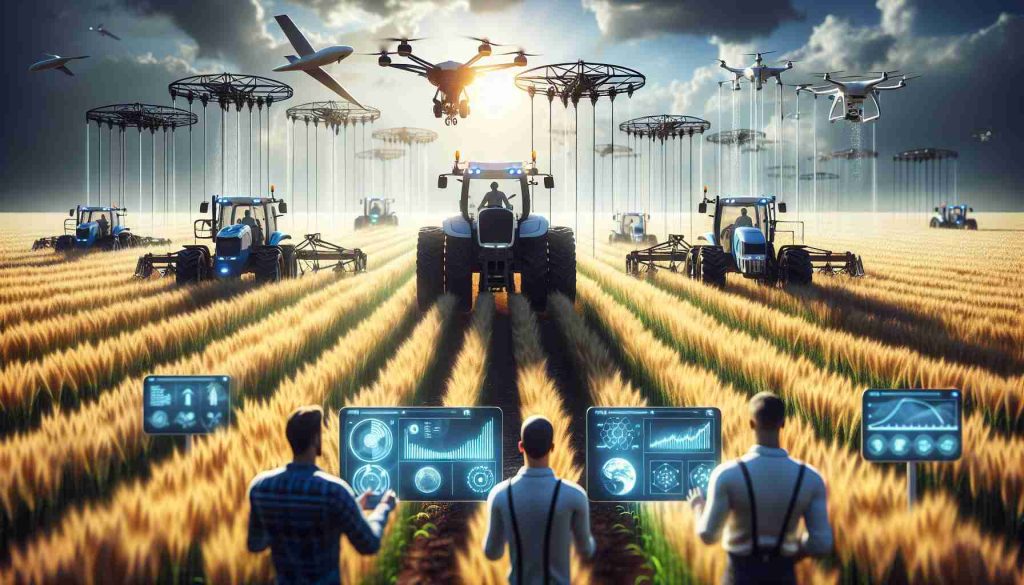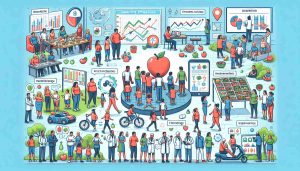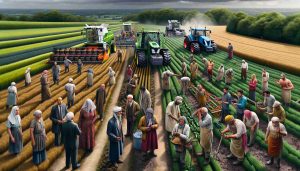The Rise of Revolutionary Farming Techniques
3 min read
A cutting-edge agricultural method has emerged, drastically reducing land and water usage compared to traditional farming. Through innovative techniques, this new approach requires only a fraction of the land area and water resources typically used in conventional farming practices. Researchers and farmers alike are embracing this eco-friendly method as a sustainable solution for the future of agriculture.
A remarkable transformation in farming practices has taken root, fundamentally reshaping the industry. By employing advanced technology and scientific knowledge, farmers can achieve impressive results with significantly reduced environmental impact. This evolution in agriculture is paving the way for a more efficient and resource-conscious farming sector.
Gone are the days of excessive land and water consumption in farming, as a more streamlined and sustainable method gains traction. The shift towards more efficient farming practices not only benefits the environment but also presents economic advantages for farmers. By prioritizing sustainability and resource optimization, this new approach heralds a promising future for agriculture.
In conclusion, the future of farming is undergoing a profound revolution, with a focus on maximizing efficiency and minimizing environmental impact. Through the adoption of innovative techniques, farmers are proving that it is possible to produce high yields while conserving precious land and water resources. This revolution in farming is setting a new standard for sustainable agriculture worldwide.
The Rise of Revolutionary Farming Techniques: Unveiling More Insights
As the world of agriculture witnesses a transformation propelled by revolutionary farming techniques, several important questions surface to understand the intricacies and implications of this shift.
What are some lesser-known facts about these innovative farming methods?
One key aspect that often goes unnoticed is the significant reduction in pesticide and fertilizer usage associated with these modern techniques. By harnessing technology and data-driven approaches, farmers can precisely apply inputs, minimizing chemical runoff and environmental pollution.
What are the primary challenges or controversies linked to the adoption of these methods?
While revolutionary farming techniques offer numerous benefits, challenges persist, including the initial investment costs for implementing advanced technology and training farmers to adapt to new practices. Moreover, debates regarding the potential impact on traditional farming communities and the need for policy support to facilitate the transition loom large.
What are the advantages and disadvantages of embracing these cutting-edge farming strategies?
The advantages are manifold, encompassing increased efficiency, reduced resource consumption, and improved sustainability. Farmers can achieve higher yields on smaller land parcels while promoting soil health and biodiversity. However, challenges such as the risk of technological dependencies, data security concerns, and potential disruptions to existing ecosystems must be carefully addressed.
In navigating the complexities of this agricultural revolution, it is crucial to acknowledge the nuanced landscape of opportunities and obstacles that come with the territory. By exploring the uncharted territories of sustainable farming practices, stakeholders can chart a course towards a resilient and environmentally conscious future for agriculture.
For further insights into the realm of innovative farming techniques, you may explore Food and Agriculture Organization (FAO), a leading global authority on agricultural innovations and sustainable practices.






